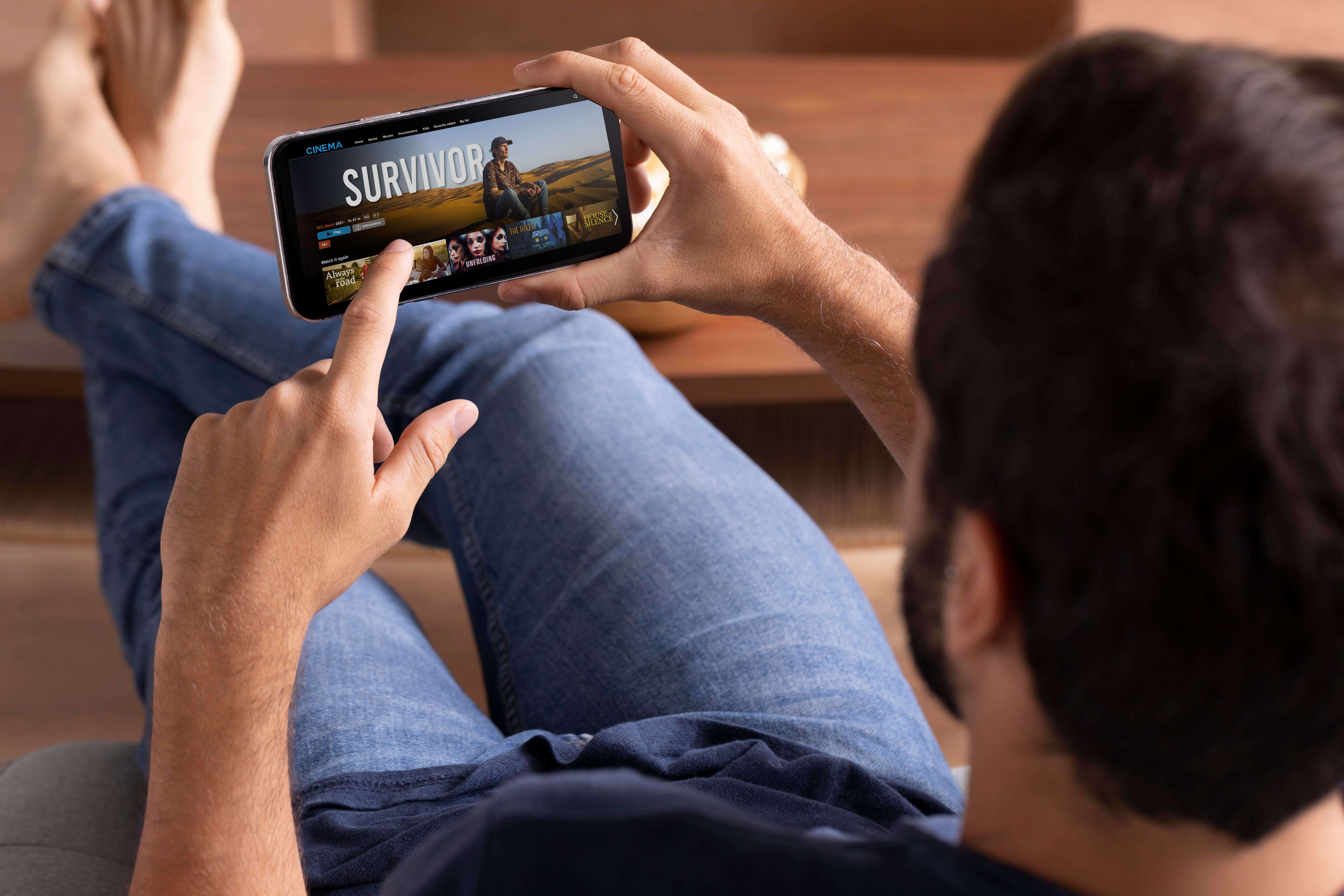
Game Localization for Indonesia: Unlocking a Booming Mobile Market
The global mobile gaming industry has experienced exponential growth in recent years, driven by increasing smartphone penetration and widespread internet access. In this dynamic landscape, Indonesia stands out as one of the fastest-growing mobile gaming markets in Asia. With over 100 million smartphone users and a youthful population, the country has become a prime destination for game developers aiming to expand their reach in Southeast Asia.
Indonesia's mobile gamers are not only large in number but also highly engaged in participating in mobile eSports, following game influencers, and forming vibrant online communities. However, breaking into this promising market requires more than just launching an English-language game. Cultural nuances, language preferences, and local expectations significantly influence user engagement and retention.
Game localization emerges as a key strategy for developers looking to succeed in Indonesia. By adapting game content to fit the linguistic and cultural context of Indonesian players, developers can offer a more immersive and enjoyable experience.
Why Indonesia’s Mobile Gaming Market Is Booming
Indonesia's mobile gaming market is thriving and is one of the most sought-after markets for game developers who wish to reach Asia. Indonesia has over 100 million smartphone subscribers and over 77% internet penetration, giving a huge and rapidly expanding market for games on mobile.
There are several reasons for this boom. To begin with, cheap smartphones and cheap internet have brought mobile gaming within reach of almost every segment. Consequently, gaming has also become a part of people's daily lives, particularly among the youth. Indeed, Indonesia has the second youngest population in the region, with more than 50% of its population under the age of 30, many of whom are digital natives.
Barred from access, interest has also been fueled by the establishment of local gaming communities. eSports is becoming increasingly mainstream, as can be seen with games like Mobile Legends and PUBG Mobile. National esports tournaments draw millions of viewers, and local streamers and influencers stream massive viewership daily on YouTube, TikTok, and Nimo TV.
All of these trends signal a thriving environment in which mobile gaming is entertainment, lifestyle, and career. For both publishers and developers alike, it is a recognition of this momentum and complete engagement with this market through localization that may be the ticket to long-term success for Indonesia's emerging culture of mobile gaming.
What Is Game Localization?
Localization of a video game to sell to the culture, language, and preferences of a target market is what game localization is all about. Translation, just copying words from one language and putting them into another, is different from localization, which is a larger concept, such as re-tuning text, graphics, sound, and culture to create a natively seen game for players.
Indonesian market localization typically involves translating game texts and dialogue as well as voiceovers into Bahasa Indonesia. Apart from language, it involves making cultural references, idioms, jokes, character names, and even in-game events more suitable for Indonesian players. For example, incorporating local holidays or regional expressions into the game can highly engage people.
The final aim of game localisation is to give the gamers the impression that the game was particularly designed for them. When Indonesian gamers play a game localized to their language, both linguistically and culturally, they will tend to keep playing, enjoy the gameplay, and be faithful customers. With a competitive mobile gaming market, localization is no longer optional; it's a strategic necessity for developers wishing to expand their player bases and be successful in the long term.
Successful Mobile Game Localization in Indonesia

Several leading mobile game titles have been able to reach and succeed in the Indonesian marketplace through the use of strong localization strategies. Titles like Genshin Impact, PUBG Mobile, and Mobile Legends have all invested in local language support, cultural adaptation, and community outreach, and the results have been well worth it.
Genshin Impact, for one, did not just subtitle its UI into Bahasa Indonesian but also included official Indonesian voice-overs and tailored promotional events specifically for Indonesian audiences. This left Indonesian players in the mix, with the game receiving high ratings and tremendous word-of-mouth endorsement within weeks of release.
PUBG Mobile also localized its game chat system, menus, and even went to the extent of creating Indonesia-specific marketing campaigns, including collaborations with local influencers and organizing region-specific eSports events. Mobile Legends, which was developed by Moonton, also gained popularity early on by offering a full Bahasa Indonesia gaming experience and regularly offering Indonesian flavors like special skins, Indonesian hero mentions, and national holiday-themed events.
These localization efforts impacted user engagement directly. All of these games saw download volumes boosted from Indonesia, with greater retention owing to the familiar and comprehensible content. Local players were likely to stay active and share the games with friends. The use of culturally appropriate features also facilitated ownership and pride within the Indonesian gaming community.
Key Strategies for Localizing Mobile Games
Translating mobile games to successfully sell to the Indonesian market is not a simple translation but one of cultural understanding and strategic modification. The game creators must begin with extensive research of their audiences, testing art style preferences, narrative tone, humor, and mechanics that resonate with Indonesian players. Casual play genres, bright and dynamic graphics, and community-focused features are popular. Native-language translators and editors ensure the dialogue, UI elements, and tutorials sound and look natural and genuine. It takes more than language alone; in-phrasing familiarity, slang usage, and local vocabulary contribute immensely to user engagement and recall.
No less important is the inclusion of local playtesting for cultural sensitivity, correct interfaces, and clarity of in-game tutorials. The monetization strategies must also be changed, such as offering payment options like GoPay, OVO, bank transfers, and carrier billing helps eliminate checkout friction. Prices must be localized based on local purchasing power and made available in Indonesian Rupiah. Finally, incorporating popular Indonesian influencers and gaming communities on platforms like YouTube, TikTok, or Discord lends credibility and engagement. Localized approaches like these help mobile games not only enter the Indonesian market but thrive in it, gaining dedicated user bases and enduring success.
Challenges in Localizing for Indonesia and How to Overcome
Localizing Indonesian mobile games also has its own set of challenges. One of the most common ones is language nuances like idioms, jokes, or lines that do not hold together when translated literally. For example, the sense of humor or cultural references may not be appealing and may even be misunderstood if poorly localized. Additionally, there is also cultural and religious sensitivity in a multicultural country like Indonesia, where one minor faux pas may spur negative reactions. Another technical challenge is typography, whereby some games fail to support the supporting font set or character encoding for Bahasa Indonesia, making it difficult to read and impacting UX.
For these to be overcome, developers should create a localization glossary that sets standard terms and voice consistency across the game. While AI-generated translation software can be helpful in terms of speed, human checks are essential in ensuring accuracy and cultural appropriateness. Collaborating with local agencies or indigenous partners is also an intelligent move; they give feedback on current gaming cultures and avert possible misinterpretations. Quality control and standard linguistic testing have to be integrated into the localization process and not be an afterthought. Effective localization is actually about crafting a seamless, natural experience for Indonesian gamers and beyond mere translation.
Localization as a Gateway to Growth
Localization is no longer a luxury but a strategic necessity for mobile game developers targeting the Indonesian market. With over 100 million smartphone users and a rapidly developing gaming ecosystem, Indonesia offers a fertile field for expansion, especially for those developers prepared to adapt their content to local tastes and cultural sensibilities. Executed well, game localization does more than provide more downloads; it fosters richer engagement, community loyalty, and player retention.
Quality localization through native language professionals, cultural adaptation, and local testing is what can make the difference between an app that has a fleeting moment of popularity versus a long-term success. Indonesia isn't just a large audience waiting to be reached; it's an active, involved community that craves authenticity and relatability. For developers who are prepared to make a commitment to localization as a core strategy, the return is not only near-term in user numbers, but also longer-term in brand equity and monetization potential. The time is now to approach Indonesia not only as a market, but as a growth partner.
Ready to unlock the Indonesian gaming market with expert game localization services? Visit https://digital-trans.asia/ to learn more about our services. Contact us today to get started!